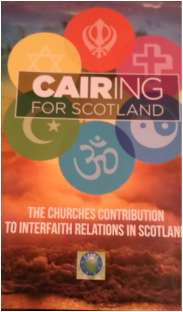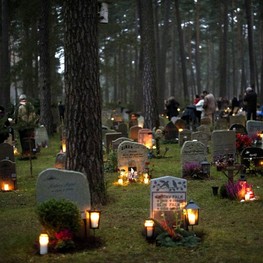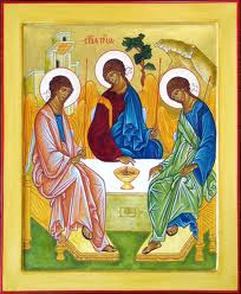
" In our time when day by day humankind is being drawn closer together, and the ties between different peoples are becoming stronger, the Church examines more closely her relationship to non- Christian religions.
Nostra Aetate wasn't planned for. It was an unexpected gift of the Spirit. When Pope John XXIII called the Second Vatican Council he had a concern for Christian Unity but no plans for anything interfaith. This changed after a meeting with the Jewish historian Jules Isaac who had written a book, detailing the history of Christian anti-Semitism and how this was expressed in Christian scriptures and writings. The Pope was very aware of the fate the Jews had suffered in the Holocaust. As Apostolic Delegate to Turkey he had distributed baptismal certificates to save Jews from the horrors awaiting them and in recognition of this was acknowledged as one of the Righteous Gentiles. As a result of his meeting with Jules Isaac the Pope asked for a statement on the Church's relations with the Jewish people which after much debate and a certain amount of controversy was extended to other faiths and finally promultgated as Nostra Aetate.
This was only the beginning but it was a turning point which has changed the Catholic Church's relations with the Jews and begun 50 years of interreligious dialogue. It has taken Popes to visit Synagogues and Mosques, call religious leaders to Assisi to pray for peace and speak out over and over again about the importance of interfaith relations. It certainly is something to celebrate and there are celebrations all over the world, some highpowered and academic, some simpler and more community based. Some will have been organised by Committees for Interreligious Dialogue but many have been organised by Councils of Christians and Jews. An important one is to take place in a few days time in Jerusalem when Jews, Christians, Muslims, Druze will come together to seek peace in that troubled and divided city - good news but not one that will make the headlines.
We celebrated Nostra Aetate in Scotland. We remembered how things had changed over the past 50 years and reflected together on the future. This was an event organised by the Catholic Bishops' Committee for Interreligious Dialogue and the Episcopal Church's Committee for Relations with People of Other Faiths. It included Christians from a number of denominations and friends from the Jewish, Muslim and Baha'i Faiths. As one of the speakers said, who would have imagined 50 years ago that this small documented would be celebrated in Glasgow by different Christian denominations and different faiths. It would have been unthinkable in the 1960s and shows just how far we have come in the journey towards understanding and friendship.
Fifty years ago there were no interfaith groups in Scotland, now there are twenty and a national interfaith body, Interfaith Scotland. Religious Leaders meet regularly, faith communities open their doors and hearts to other faiths, work together in service to the community and the Government recognises and supports all this work, knowing that it makes a valuable contribution to social cohesion and harmony. In all this work the Christian Churches have played an important and significant role. This was celebrated on the day with the publication of a booklet ' CAIRing for Scotland, the Churches Contribution to Interfaith Relations in Scotland'. The purpose was not to praise the Churches or the individuals involved but to keep alive the memory of interfaith relations in Scotland. For many of us involved in interfaith relations the time is coming when we must hand over to a younger generation. This is necessary if the work is to continue, develop and flourish. But this future work builds on that done by others. It will have its roots in the past but a past that should not be forgotten but kept alive in the memory of those who come after. Hopefully CAIRing for Scotland will do that.





 RSS Feed
RSS Feed
